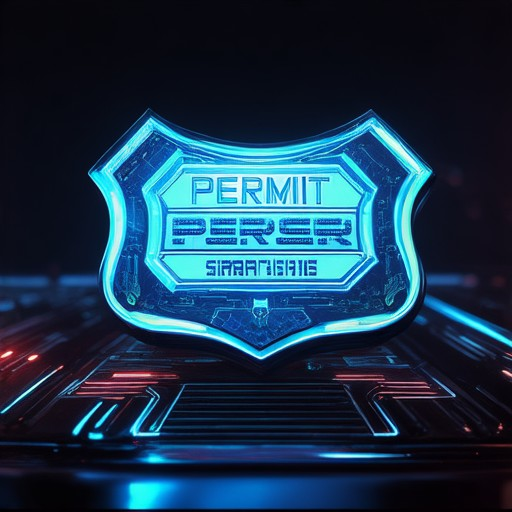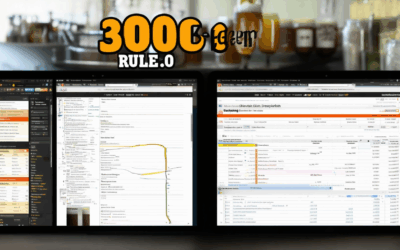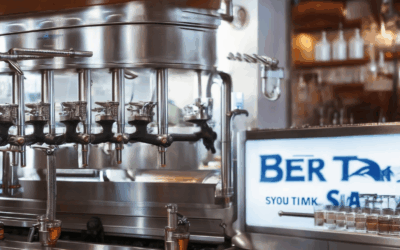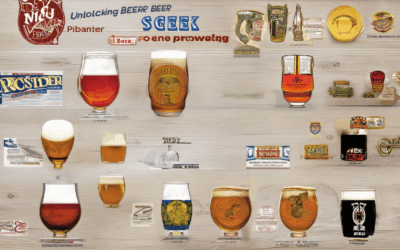Securing your beer permit is a crucial step for anyone looking to enter the world of brewing, distribution, or sales. Whether you’re opening a microbrewery, planning to sell craft beers locally, or expanding your business to include alcohol transportation, understanding the requirements and costs involved is essential. Each state has its own unique set of guidelines, making the process both exciting and complex. From determining the type of permit needed to navigating the application process, this guide will walk you through everything you need to know about beer permits in 2023. Discover how to obtain the necessary licenses, meet state-specific requirements, and avoid common pitfalls along the way. Whether you’re a seasoned entrepreneur or new to the industry, this comprehensive guide will provide the insights and tools you need to secure your beer permit successfully.
Key Takeaways
– Understand State-Specific Beer Transportation Laws: Each state has unique regulations, so check local rules based on quantity, purpose, and transportation method.
– Determine Permit Needs: Larger quantities for commercial use typically require permits, while small amounts for personal use may not.
– Know Federal Regulations: Transporting beer across state lines may involve additional federal permits.
– Contact Local Authorities: Reach out to your state’s Department of Revenue or licensing agency for precise requirements.
– Secure Necessary Licenses: Commercial operations need permits, while personal use often doesn’t.
– Check Zoning Laws: Ensure your location complies with local alcohol sale and consumption regulations.
– Obtain Liability Insurance: Cover alcohol-related activities with insurance meeting local authority standards.
– Maintain Record-Keeping: Track alcohol purchases, sales, and inventory accurately and submit required reports.
– Train Staff Properly: Ensure employees understand alcohol service regulations and safety protocols.
– Budget for Fees: Plan for application, inspection, and licensing costs, varying by location.
– Consider Business Type: Different requirements apply based on brewery, bar, or home-based operations.
– Comply with Legal Guidelines: Ensure signage and advertising meet local alcohol laws.
– Pass Inspections: Schedule and pass fire safety and occupancy inspections for your premises.
– Consult Local Experts: Contact your local alcohol control board for personalized guidance and resources.

What Permits Do I Need to Sell Alcohol in California?
To sell alcohol in California, you typically need several permits and licenses. Here’s a breakdown of the most common ones:
- ABC License (Type 41): This is the primary permit required to sell alcohol. The type of license depends on your business operations: – Type 41: Allows the sale of beer and wine for on-premises consumption, such as in a restaurant or bar. – Other types may apply for different business models, such as wineries, distilleries, or bottling plants.
- Seller’s Permit: Obtainable from the California Department of Tax and Fee Administration (CDTFA), this permit is necessary for selling goods subject to sales tax, including alcohol.
- Local Business License: Check with your city or county government to obtain this, as it’s often required to operate a business locally.
- Zoning Clearance: Ensure your location complies with local zoning laws regarding alcohol sales and production.
- Special Event Permits: If hosting events with alcohol, you may need a special event or catering permit from the local authority.
Additionally, all employees involved in alcohol sales or service must be at least 21 years old, and appropriate signage must be displayed.
For detailed information and application processes, consult the California Department of Tax and Fee Administration and the California Department of Alcoholic Beverage Control .
How Much Is a Beer License in Georgia?
Georgia requires a beer permit for establishments that sell alcohol, with costs varying based on factors like the type of establishment and alcohol percentage. Here’s a breakdown:
- Beer Permit : Typically ranges from $300 to $500 annually, covering most beer sales in bars, restaurants, and stores.
- Establishment Type : Costs may vary. For example, a bar might require a different license than a grocery store.
- Additional Fees : One-time fees for applications and inspections may apply, alongside any local taxes or city-specific permits.
- Application Process : Contact local authorities or the Georgia Department of Revenue for specific requirements and steps to obtain a license.
This structure ensures clarity and helps determine the necessary steps for obtaining a beer license in Georgia.

How Much Is a Beer License in Texas?
To obtain a beer license in Texas, the cost varies based on the type of establishment and its operations. Here’s a breakdown:
- Application Fees : The initial application fee typically ranges from $100 to $300, depending on the establishment’s size and the type of alcohol sold.
- Annual Renewal Fees : After the first year, renewal fees are generally lower, ranging from $50 to $150 annually. These fees cover regulatory compliance and oversight.
- Establishment Type : Bars, restaurants, and retail outlets may incur additional costs due to specific permits required for on-premises or off-premises alcohol sales.
- Breweries and Taprooms : Breweries and taprooms may face different regulations, potentially involving additional fees for production and distribution.
- Other Requirements : Costs may include one-time fees for signs, inventory, or other regulatory needs, which should be considered in the overall budget.
For the most accurate and updated information, consulting the Texas Alcoholic Beverage Control (TABC) website or contacting their office is recommended.

Do I Need a Permit to Transport Beer?
Whether you need a permit to transport beer depends on several factors:
- Quantity : Small quantities for personal use often do not require permits, while larger amounts may necessitate one.
- State Laws : Each state has unique regulations. Check your state’s policies to understand permit requirements based on quantity and transportation method.
- Purpose : Commercial transportation for resale usually requires permits, whereas personal use for private consumption generally does not.
- Vehicle Type : The mode of transportation, such as trucks or vans, might influence permit needs, especially for larger quantities.
- Exceptions and Exemptions : Some states allow small quantities for personal use without permits, though this varies.
- Federal Regulations : Moving beer across state lines may involve federal permits, adding another layer of compliance.
Contact local licensing agencies or the Department of Revenue for precise requirements in your area. Ensuring compliance with all applicable regulations is crucial to avoid penalties, such as fines or legal issues.
Do I Need a Permit to Transport Beer?
Whether you need a permit to transport beer depends on several factors:
- Quantity : Small quantities for personal use often do not require permits, while larger amounts may necessitate one.
- State Laws : Each state has unique regulations. Check your state’s policies to understand permit requirements based on quantity and transportation method.
- Purpose : Commercial transportation for resale usually requires permits, whereas personal use for private consumption generally does not.
- Vehicle Type : The mode of transportation, such as trucks or vans, might influence permit needs, especially for larger quantities.
- Exceptions and Exemptions : Some states allow small quantities for personal use without permits, though this varies.
- Federal Regulations : Moving beer across state lines may involve federal permits, adding another layer of compliance.
Contact local licensing agencies or the Department of Revenue for precise requirements in your area. Ensuring compliance with all applicable regulations is crucial to avoid penalties, such as fines or legal issues.

What Are the Requirements for Obtaining a Beer Permit for a Small Business?
To obtain a beer permit for your small business, follow these organized steps:
- Research Local Regulations
- Understand state-specific laws and regulations regarding alcohol sales and distribution.
- Visit your local government website or contact the alcohol control board for detailed guidelines.
- Secure Necessary Licenses
- Apply for a general business license from your local city or town hall.
- Purchase a food service license if your business involves preparing or serving food alongside alcohol.
- Check Zoning Laws
- Verify that your establishment is located in a zone that allows alcohol sales and consumption.
- Contact your local planning department for zoning verification.
- Secure Liability Insurance
- Obtain liability insurance that specifically covers alcohol-related activities.
- Ensure your insurance policy meets the minimum requirements set by your local authorities.
- Maintain Record Keeping
- Keep accurate records of all alcohol purchases, sales, and inventory transfers.
- Submit periodic reports to your local alcohol control board as required.
- Conduct Staff Training
- Train employees on responsible alcohol service practices and local regulations.
- Ensure staff understands health and safety protocols related to alcohol handling.
- Pay Application Fees
- Budget for the associated fees, which may include application, inspection, and licensing costs.
- Fees vary by location, so check with your local authority for exact amounts.
- Consider Establishment Type
- Different requirements apply based on your business type, such as brewery, bar, or home-based operations.
- Visit the Craft Beer Chronicles for detailed insights.
- Adhere to Legal Guidelines
- Ensure all signage and advertising complies with local alcohol laws.
- Consult the Brewmaster Academy for compliance tips.
- Undergo Inspections
- Schedule a fire safety and occupancy inspection for your premises.
- Pass all required inspections to receive your beer permit.
- Consult Local Authorities
- Contact your local alcohol control board or licensing authority for personalized guidance.
- Download a checklist or guide from their official website to streamline the process.
By following these steps, you can efficiently navigate the permit application process and ensure compliance with local regulations. Remember to stay informed and reach out to local authorities for any updates or changes in regulations.
For more resources and tools to help your small business succeed, visit The Goods On Tap .





0 Comments